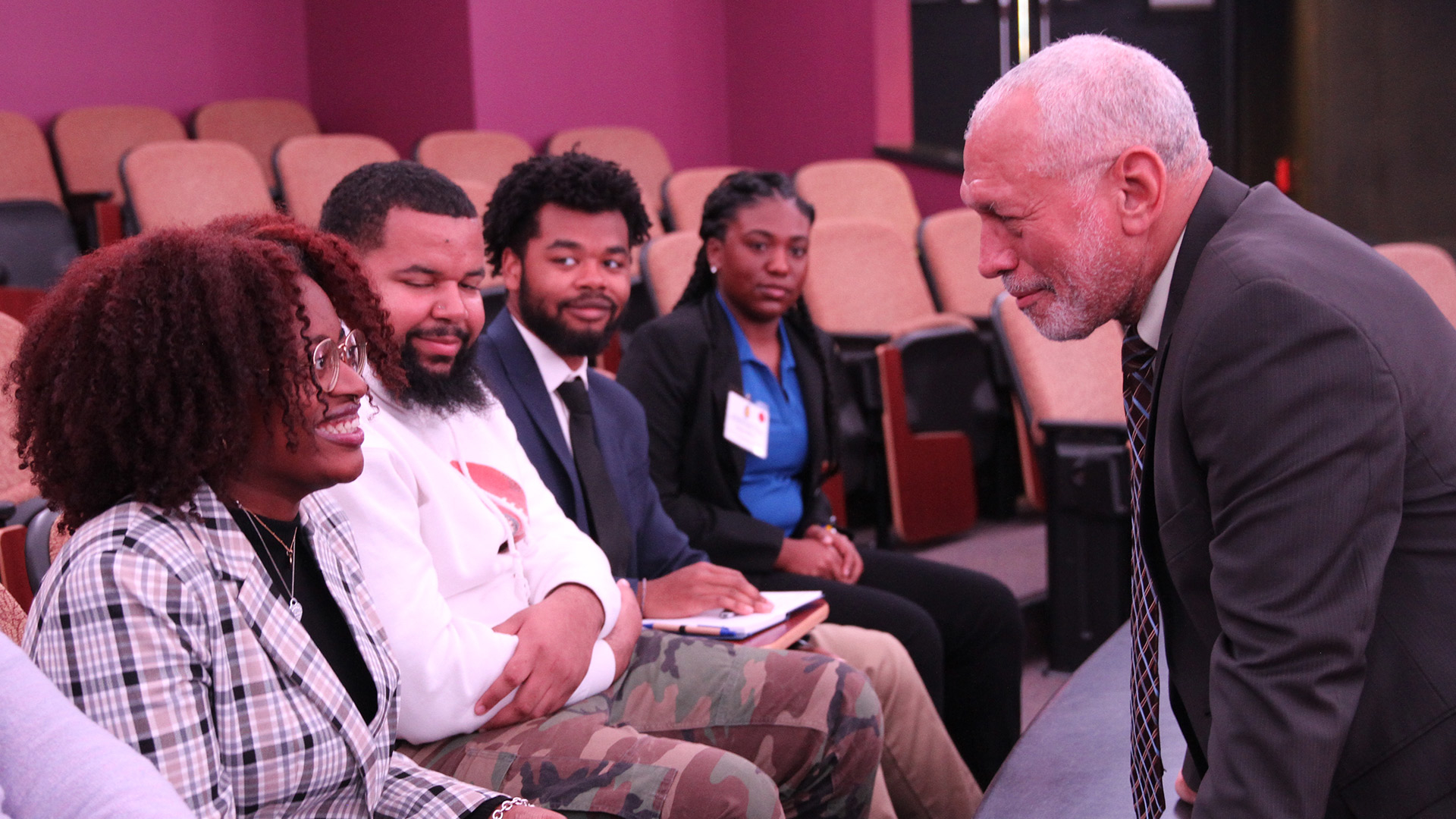
Charles Bolden speaks with Ronald E. McNair Scholars from N.C. A&T State University, who were guests at his Q&A at Guilford.
The retired NASA Administrator says there are more opportunities than ever for students to enter the space industry if they are interested.
“There were no lines or borders like you’d see on a map. I wanted to see all those countries along the west coast (of Africa) but I couldn’t tell one country from another. All I saw was this incredibly big, incredibly expansive and beautiful country that went from the green and lush Mediterranean coast to the Sahara desert to the jungles.”
Former NASA Administrator and astronaut Charles Bolden told Guilford students and other invited guests Thursday that many of his views about earth were formed hundreds of miles up in space.
In the months leading up to his first shuttle flight in 1986, Charles spent his free time thinking about how a Black man who grew up in South Carolina in the Jim Crow era would soon be orbiting the earth.
Charles knew he was a descendant from slaves, most of whom, he says, came from the west coast of Africa. About 15 minutes into the flight he looked down at earth and saw the entire continent from a perspective he’d never seen before.
“There were no lines or borders like you’d see on a map,” he told the gathering in Joseph M. Bryan Jr. Auditorium on campus. “I wanted to see all those countries along the west coast but I couldn’t tell one country from another. All I saw was this incredibly big, incredibly expansive and beautiful country that went from the green and lush Mediterranean coast to the Sahara desert to the jungles.”
Something else struck him, too. “You couldn’t see any people. There are no signs of violence or war or strife in space. It’s just so incredibly peaceful,” he told the gathering. “That peace you see in space? We need to aspire for that down here.”
Charles, who was nominated by President Barack Obama as the 12th Administrator of NASA in 2009, a position he held for eight years, told students the opportunities to work in space are wide-open. Where once NASA held a stranglehold on the job market, today there are many private companies exploring space.
“You've got Virgin Galactic and Blue Origin and SpaceX and other companies all now providing opportunities for people who want to be connected to space,” he said. “It’s a completely different landscape from when I was your age.”
One thing hasn’t changed, he said. “You need that fire,” Charles told students. “You need that fight in you to want to get there.”
Bolden’s Q&A at the Frank Family Science Center on campus came hours before he presented on the past, present and future of space exploration to an audience of 1,250 in the fourth program of the current Bryan Series season at the Steven Tanger Center for the Performing Arts.
The Bryan Series season concludes April 9 with journalist Judy Woodruff, who has worked in network, cable, and public television news for nearly 50 years. She was the anchor and managing editor of the PBS NewsHour through the end of 2022 and has covered every presidential election and convention since 1976. Currently, she is on a two-year reporting project for the NewsHour entitled “America at a Crossroads.”
Tickets for Judy's talk can be purchased online through the Tanger Center or in person at the Tanger box office from noon to 5 p.m. Tuesday through Saturday.

